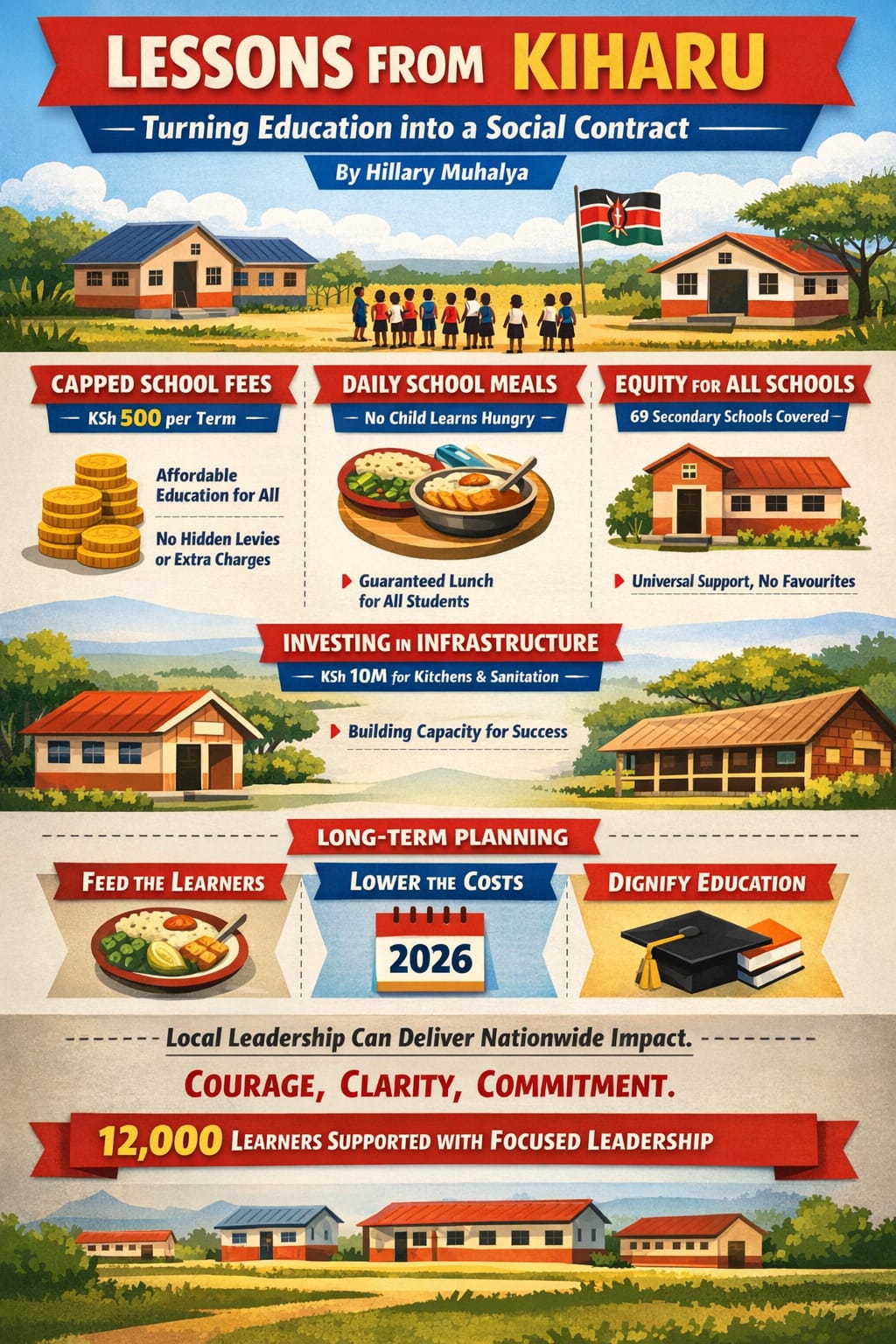By Paul Thiong’o
There are many factors that can lead to good performance in education. One of these factors is knowledge on a given curriculum and its implementation.
For instance, candidates who are handled by a single teacher in a particular school subject from Form 1 to Form 4, tend to perform better in the final exam or assessment compared to candidates handled by different teachers in a single subject.
Perhaps this can be attributed to the continuous learner-teacher acquaintance, consistency in the teaching and learning processes, feeling of ownership, bonding, building of trust between the student and the teacher, consistency in discipline management -behaving in ‘loco parentis’ , confidence building, less divided teacher-learner attention and the teacher-parent collaboration among many other factors.
The same applies to students taking optional subjects who tend to do well when making decisions on which subjects to pick and which ones to drop either after Form 1 or Form 2.
This happens especially if the learners are taught by the same teacher from 1 to Form 2.
This is an area that requires very careful study and timely response or communication from the teacher to the learner.
In order for such a learner to develop positive attitudes towards elective subjects, there is a need to inform and prepare learners in advance of the exam or curriculum expectations early enough including providing clarity on cut-off points and grading criteria.
The new curriculum is a welcome platform for exposing learners to different experiences in order to identify themselves and develop holistically, either physically, mentally or emotionally, towards becoming better citizens in future.
The new curriculum is competency based. Therefore, a good teacher has to be in possession of all the knowledge and content on the new 2-6-6-3 system of education.
He or she will be in a better position to assess the learner abilities and talents and to facilitate and help the learner to smoothly progress along their chosen learning career paths.
As we talk now, some and majority of the teachers can hardly comprehend a thing about the new curriculum and the new system of education.
Majority of the learners possess great gifts, talents and abilities that need to be identified, harnessed, natured and exploited.
In order for the Ministry Of Education Science and Technology (MOEST) to realise the goals of the new 2-6-6-3 system of education, it is still very important to recruit as many more teachers.
Since the new 2-6-6-3 system of education focuses more on the abilities of the learners, it is only by increasing the number of teachers to student ratio and seriously addressing staffing needs in all schools, that its objectives will be realized.
This will enable smooth identification, capturing, tapping, nurturing and developing of the diverse learners’ gifts, needs and abilities.For the new 2-6-6-3 system of education to succeed, the MOEST should also aim at enhancing home-schooling collaboration especially between the schools and the parents/guardians/community and other stakeholders and partners.
The current new curriculum has already undergone its first piloting stage and is now in its final piloting stage cum-implementation.
The pre-independence 7-4-2-3 education system that was handed over to the then Kenyan Government by the colonialists at independence in 1963 was majorly passive and theoretical.
Later came the 8-4-4 education system which has been partly practical oriented and has been highly discredited and criticised by many for being too much exam oriented , bureaucratic and only concerned with drilling pupils to pass in exams.
Thiong’o is a teacher Isovya
Secondary School in
Makueni County.





